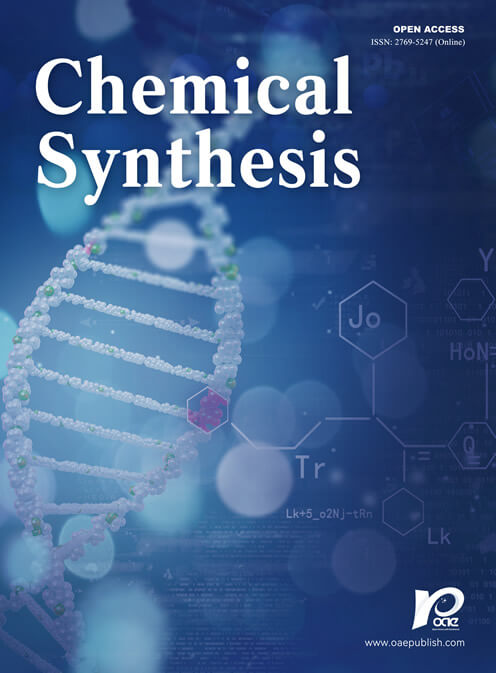REFERENCES
2. Andrady AL, Neal MA. Applications and societal benefits of plastics. Philos Trans R Soc Lond B Biol Sci. 2009;364:1977-84.
3. Geyer R, Jambeck JR, Law KL. Production, use, and fate of all plastics ever made. Sci Adv. 2017;3:e1700782.
4. Bergmann M, Collard F, Fabres J, et al. Plastic pollution in the Arctic. Nat Rev Earth Environ. 2022;3:323-37.
5. MacLeod M, Arp HPH, Tekman MB, Jahnke A. The global threat from plastic pollution. Science. 2021;373:61-5.
6. Zhao X, You F. Life cycle assessment of microplastics reveals their greater environmental hazards than mismanaged polymer waste losses. Environ Sci Technol. 2022;56:11780-97.
7. Zhao X, Korey M, Li K, et al. Plastic waste upcycling toward a circular economy. Chem Eng J. 2022;428:131928.
8. Chen J, Wu J, Sherrell PC, et al. How to build a microplastics-free environment: strategies for microplastics degradation and plastics recycling. Adv Sci. 2022;9:e2103764.
9. Rahimi A, García JM. Chemical recycling of waste plastics for new materials production. Nat Rev Chem. 2017;1:BFs415700170046.
10. Badia J, Ribes-Greus A. Mechanical recycling of polylactide, upgrading trends and combination of valorization techniques. Eur Polym J. 2016;84:22-39.
11. Ignatyev IA, Thielemans W, Vander Beke B. Recycling of polymers: a review. ChemSusChem. 2014;7:1579-93.
12. Dai L, Zhou N, Lv Y, et al. Pyrolysis technology for plastic waste recycling: a state-of-the-art review. Prog Energy Combust Sci. 2022;93:101021.
13. Thiounn T, Smith RC. Advances and approaches for chemical recycling of plastic waste. J Polym Sci. 2020;58:1347-64.
14. Chen H, Wan K, Zhang Y, Wang Y. Waste to wealth: chemical recycling and chemical upcycling of waste plastics for a great future. ChemSusChem. 2021;14:4123-36.
15. Xu G, Wang Q. Chemically recyclable polymer materials: polymerization and depolymerization cycles. Green Chem. 2022;24:2321-46.
16. Hakimelahi HR, Hu L, Rupp BB, Coleman MR. Synthesis and characterization of transparent alumina reinforced polycarbonate nanocomposite. Polymer. 2010;51:2494-502.
17. Singh R, Shahi S, Geetanjali. Chemical degradation of poly(bisphenol a carbonate) waste materials: a review. ChemistrySelect. 2018;3:11957-62.
18. Esmer ÖK, Çağındı Ö. Safety of polycarbonate water carboys for residual and migration levels of bisphenol-A. Akademik Gıda. 2020;18:411-20.
19. Saal FS, Vandenberg LN. Update on the health effects of bisphenol A: overwhelming evidence of harm. Endocrinology. 2021;162:bqaa171.
20. Lopes-Rocha L, Ribeiro-Gonçalves L, Henriques B, Özcan M, Tiritan ME, Júlio C, Souza JCM. An integrative review on the toxicity of Bisphenol A (BPA) released from resin composites used in dentistry. Biomed Mater Res. 2021;109:1942-52.
21. Antonakou EV, Achilias DS. Recent advances in polycarbonate recycling: a review of degradation methods and their mechanisms. Waste Biomass Valor. 2013;4:9-21.
23. Thiyagarajan S, Maaskant-Reilink E, Ewing TA, Julsing MK, Haveren JV. Back-to-monomer recycling of polycondensation polymers: opportunities for chemicals and enzymes. RSC Adv. 2022;12:947-70.
24. Huang J, He C, Li X, Pan G, Tong H. Theoretical studies on thermal degradation reaction mechanism of model compound of bisphenol A polycarbonate. Waste Manag. 2018;71:181-91.
25. Yu Y, Gao B, Liu Y, Lu XB. Efficient and selective chemical recycling of CO2-based alicyclic polycarbonates via catalytic pyrolysis. Angew Chem. 2022;61:e202204492.
26. Quaranta E. Rare Earth metal triflates M(O3SCF3)3 (M = Sc, Yb, La) as Lewis acid catalysts of depolymerization of poly-(bisphenol A carbonate) via hydrolytic cleavage of carbonate moiety: catalytic activity of La(O3SCF3)3. Appl Catal B. 2017;206:233-41.
27. Montaudo G, Carroccio S, Puglisi C. Thermal and themoxidative degradation processes in poly(bisphenol a carbonate). J Anal Appl Pyrolysis. 2002;64:229-47.
28. Puglisi C, Sturiale L, Montaudo G. Thermal decomposition processes in aromatic polycarbonates investigated by mass spectrometry. Macromolecules. 1999;32:2194-203.
29. Siddiqui MN, Redhwi HH, Antonakou EV, Achilias DS. Pyrolysis mechanism and thermal degradation kinetics of poly(bisphenol A carbonate)-based polymers originating in waste electric and electronic equipment. J Anal Appl Pyrolysis. 2018;132:123-33.
30. Grause G, Kärrbrant R, Kameda T, Yoshioka T. Steam hydrolysis of poly(bisphenol a carbonate) in a fluidized bed reactor. Ind Eng Chem Res. 2014;53:4215-23.
31. Quaranta E, Mesto E, Lacalamita M, et al. Using a natural chlorite as catalyst in chemical recycling of waste plastics: hydrolytic depolymerization of poly-[bisphenol A carbonate] promoted by clinochlore. Waste Manag. 2021;120:642-9.
32. Alberti C, Eckelt S, Enthaler S. Ruthenium-catalyzed hydrogenative depolymerization of end-of-life poly(bisphenol A carbonate). ChemistrySelect. 2019;4:12268-71.
33. Westhues S, Idel J, Klankermayer J. Molecular catalyst systems as key enablers for tailored polyesters and polycarbonate recycling concepts. Sci Adv. 2018;4:eaat9669.
34. Hata S, Goto H, Tanaka S, Oku A. Viable utilization of polycarbonate as a phosgene equivalent illustrated by reactions with alkanedithiols, mercaptoethanol, aminoethanethiol, and aminoethanol: a solution for the issue of carbon resource conservation. J Appl Polym Sci. 2003;90:2959-68.
35. Hu LC, Oku A, Yamada E. Alkali-catalyzed methanolysis of polycarbonate. A study on recycling of bisphenol A and dimethyl carbonate. Polymer. 1998;39:3841-5.
36. Piñero R, García J, Cocero MJ. Chemical recycling of polycarbonate in a semi-continuous lab-plant. A green route with methanol and methanol-water mixtures. Green Chem. 2005;7:380.
37. Chiu SJ, Tsai CT, Chang YK. Monomer recovery from polycarbonate by methanolysis. e-Polymers. 2008;8:12008.
38. Kim D, Kim B, Cho Y, Han M, Kim B. Kinetics of polycarbonate methanolysis by a consecutive reaction model. Ind Eng Chem Res. 2009;48:6591-9.
39. Alberti C, Scheliga F, Enthaler S. Recycling of end-of-life poly(bisphenol A carbonate) via alkali metal halide-catalyzed phenolysis. ChemistryOpen. 2019;8:822-7.
40. Liu F, Li Z, Yu S, Cui X, Ge X. Environmentally benign methanolysis of polycarbonate to recover bisphenol A and dimethyl carbonate in ionic liquids. J Hazard Mater. 2010;174:872-5.
41. Liu F, Li L, Yu S, Lv Z, Ge X. Methanolysis of polycarbonate catalysed by ionic liquid [Bmim][Ac]. J Hazard Mater. 2011;189:249-54.
42. Quaranta E, Sgherza D, Tartaro G. Depolymerization of poly(bisphenol A carbonate) under mild conditions by solvent-free alcoholysis catalyzed by 1,8-diazabicyclo[5.4.0]undec-7-ene as a recyclable organocatalyst: a route to chemical recycling of waste polycarbonate. Green Chem. 2017;19:5422-34.
43. Alberti C, Enthaler S. Depolymerization of end-of-life poly(bisphenol A carbonate) via 4-dimethylaminopyridine-catalyzed methanolysis. Waste Biomass Valor. 2020;11:4621-9.
44. Yang R, Xu G, Dong B, Guo X, Wang Q. Selective, sequential, and “one-pot” depolymerization strategies for chemical recycling of commercial plastics and mixed plastics. ACS Sustain Chem Eng. 2022;10:9860-71.
45. Payne JM, Kamran M, Davidson MG, Jones MD. Versatile chemical recycling strategies: value-added chemicals from polyester and polycarbonate waste. ChemSusChem. 2022;15:e202200255.
46. Oku A, Tanaka S, Hata S. Chemical conversion of poly(carbonate) to bis(hydroxyethyl) ether of bisphenol A. An approach to the chemical recycling of plastic wastes as monomers. Polymer. 2000;41:6749-53.
47. Kim D, Kim B, Cho Y, Han M, Kim B. Kinetics of polycarbonate glycolysis in ethylene glycol. Ind Eng Chem Res. 2009;48:685-91.
48. Nifant’ev IE, Pyatakov DA, Tavtorkin AN, Ivchenko PV. Chemical recycling and upcycling of poly(Bisphenol A carbonate) via metal acetate catalyzed glycolysis. Polym Degrad Stab. 2023;207:110210.
49. Dong T, Zheng YJ, Yang GW, Zhang YY, Li B, Wu GP. Crosslinked resin-supported bifunctional organocatalyst for conversion of CO2 into cyclic carbonates. ChemSusChem. 2020;13:4121-7.
50. Sathish M, Gopinath A, Madhan B, Subramanian V, Rao JR. Cyclic carbonate: a green multifunctional agent for sustainable leather manufacture. J Clean Prod. 2022;356:131818.
51. Hidaka K, Iwakawa Y, Maoka T, Tanimoto F, Oku A. Viable chemical recycling of poly(carbonate) as a phosgene equivalent illustrated by the coproduction of bisphenol A and carbohydrate carbonates. J Mater Cycles Waste Manag. 2009;11:6-10.
52. Iannone F, Casiello M, Monopoli A, et al. Ionic liquids/ZnO nanoparticles as recyclable catalyst for polycarbonate depolymerization. J Mol Catal A Chem. 2017;426:107-16.
53. Quaranta E, Minischetti CC, Tartaro G. Chemical recycling of poly(bisphenol A carbonate) by glycolysis under 1,8-diazabicyclo[5.4.0]undec-7-ene catalysis. ACS Omega. 2018;3:7261-8.
54. Do T, Baral ER, Kim JG. Chemical recycling of poly(bisphenol A carbonate): 1,5,7-Triazabicyclo[4.4.0]-dec-5-ene catalyzed alcoholysis for highly efficient bisphenol A and organic carbonate recovery. Polymer. 2018;143:106-14.
55. Jehanno C, Demarteau J, Mantione D, et al. Synthesis of functionalized cyclic carbonates through commodity polymer upcycling. ACS Macro Lett. 2020;9:443-7.
56. Jehanno C, Demarteau J, Mantione D, et al. Selective chemical upcycling of mixed plastics guided by a thermally stable organocatalyst. Angew Chem Int Ed Engl. 2021;60:6710-7.
57. Olazabal I, Luna E, De Meester S, Jehanno C, Sardon H. Upcycling of BPA-PC into trimethylene carbonate by solvent assisted organocatalysed depolymerisation. Polym Chem. 2023;14:2299-307.
58. Hata S, Goto H, Yamada E, Oku A. Chemical conversion of poly(carbonate) to 1,3-dimethyl-2-imidazolidinone (DMI) and bisphenol A: a practical approach to the chemical recycling of plastic wastes. Polymer. 2002;43:2109-16.
59. Singh S, Lei Y, Schober A. Direct extraction of carbonyl from waste polycarbonate with amines under environmentally friendly conditions: scope of waste polycarbonate as a carbonylating agent in organic synthesis. RSC Adv. 2015;5:3454-60.
60. Wang Z, Yang R, Xu G, Liu T, Wang Q. Chemical upcycling of poly(bisphenol A carbonate) plastic catalyzed by ZnX2 via an amino-alcoholysis strategy. ACS Sustainable Chem Eng. 2022;10:4529-37.
61. Zhou X, Chai M, Xu G, Yang R, Sun H, Wang Q. Catalyst-free amino-alcoholysis depolymerization strategy: a facile and powerful tool for chemical recycling of poly(bisphenol A carbonate). Green Chem. 2023;25:952-9.
62. Jung HJ, Park S, Lee HS, et al. Chemical upcycling of waste poly(bisphenol A carbonate) to 1,4,2-dioxazol-5-ones and one-pot C-H amidation. ChemSusChem. 2021;14:4301-6.
63. Onida K, Fayad M, Norsic S, Boyron O, Duguet N. Chemical upcycling of poly(bisphenol A carbonate) to vinylene carbonates through organocatalysis. Green Chem. 2023;25:4282-91.
64. Lin C, Lin H, Liao W, Dai SA. Novel chemical recycling of polycarbonate (PC) waste into bis-hydroxyalkyl ethers of bisphenol A for use as PU raw materials. Green Chem. 2007;9:38-43.
65. Berti C, Colonna M, Fiorini M, Lorenzetti C, Marchese P. Chemical modification of terephthalate polyesters by reaction with bis(hydroxyethyl ether) of bisphenol A. Macro Mater Eng. 2004;289:49-55.
66. Pang C, Jiang X, Yu Y, et al. Sustainable polycarbonates from a citric acid-based rigid diol and recycled BPA-PC: from synthesis to properties. ACS Sustain Chem Eng. 2018;6:17059-67.
67. Gioia C, Vannini M, Celli A, Colonna M, Minesso A. Chemical recycling of post-consumer compact discs towards novel polymers for powder coating applications. RSC Adv. 2016;6:31462-9.
68. Saito K, Jehanno C, Meabe L, et al. From plastic waste to polymer electrolytes for batteries through chemical upcycling of polycarbonate. J Mater Chem A. 2020;8:13921-6.
69. Wu C, Chen L, Jeng R, Dai SA. 100% atom-economy efficiency of recycling polycarbonate into versatile intermediates. ACS Sustain Chem Eng. 2018;6:8964-75.
70. Quaranta E, Dibenedetto A, Nocito F, Fini P. Chemical recycling of poly-(bisphenol A carbonate) by diaminolysis: a new carbon-saving synthetic entry into non-isocyanate polyureas (NIPUreas). J Hazard Mater. 2021;403:123957.
71. De Leo V, Casiello M, Deluca G, et al. Concerning synthesis of new biobased polycarbonates with curcumin in replacement of bisphenol A and recycled diphenyl carbonate as example of circular economy. Polymers. 2021;13:361.








